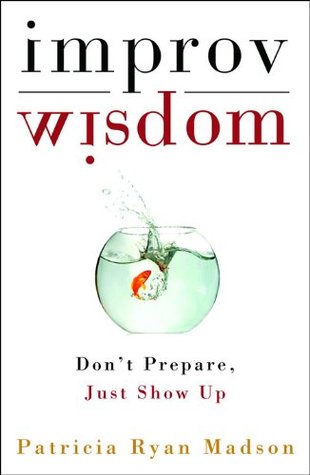More on this book
Community
Kindle Notes & Highlights
There are people who prefer to say “Yes,” and there are people who prefer to say “No.” Those who say “Yes” are rewarded by the adventures they have, and those who say “No” are rewarded by the safety they attain. There are far more “No” sayers around than “Yes” sayers, but you can train one type to behave like the other.
Blocking comes in many forms; it is a way of trying to control the situation instead of accepting it. We block when we say no, when we have a better idea, when we change the subject, when we correct the speaker, when we fail to listen, or when we simply ignore the situation. The critic in us wakes up and runs the show. Saying no is the most common way we attempt to control the future.
The habit of excessive planning impedes our ability to see what is actually in front of us. The mind that is occupied is missing the present.
The issue of punctuality is critical when the activity is a shared one. Every minute counts. Each latecomer robs the whole group of time to work together. Taking time seriously shows courtesy. You are part of a greater picture that includes everyone with whom you share a purpose. Showing up for class on time, I tell my students, is their first big step in becoming an improviser. Timeliness applies equally to couples, families, and companies. And don’t forget to be on time when you are by yourself. Treat your own time as valuable. Benjamin Franklin reminds us that “time lost is never found
...more
This fourth maxim also applies to speech. To respond to a question or start improvised scenes, begin immediately using the first words that come to you. Trust your mind. Your first thought is a reasonable starting place; it is good enough. Don’t hesitate. Once you begin speaking, you have something to work with and build on. With the first-thought method it is as if the idea selects you rather than the other way around. The improviser focuses on making that idea into a good one, rather than searching for a “good idea.”
hesitate. Once you begin speaking, you have something to work with and build on. With the first-thought method it is as if the idea selects you rather than the other way around. The improviser focuses on making that idea into a good one, rather than searching for a “good idea.”
“That seems to me to be the problem rather than the solution. Today, students just want to substitute bull for taking the time to prepare their remarks. I tell my students,
Instead of writing out your notes in precise language, try writing questions to yourself.
Giving up on perfection is the first step; the next is to stop trying to come up with something different. Striving for an original idea takes us away from our everyday intelligence, and it can actually block access to the creative process.
Do it naturally. If there is something important that you need to do, approach the problem as though you didn’t need to do your best. What is the most obvious way of solving it? How would you proceed if finding a solution was “nothing special?”


